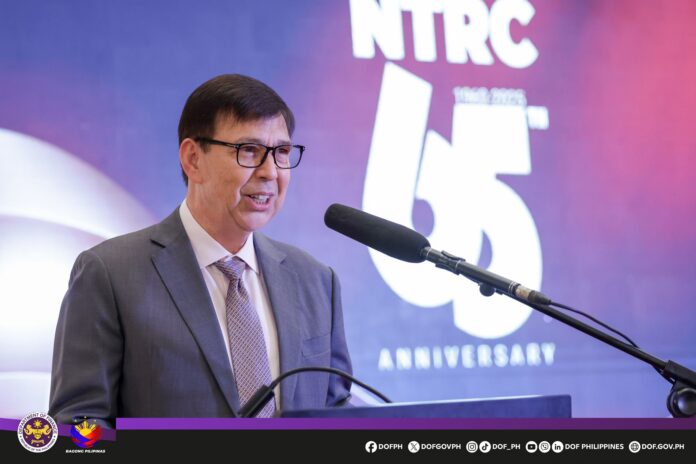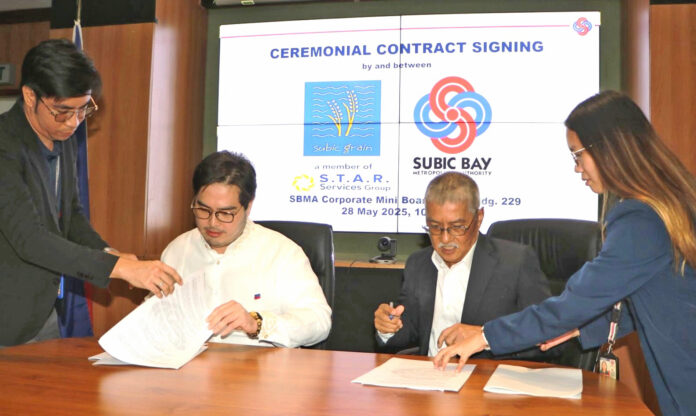Department of Finance Secretary Ralph Recto on Friday lauded the enactment of Republic Act No. 12214 or the Capital Markets Efficiency Promotion Act (CMEPA), saying this would encourage greater participation from ordinary Filipinos in the local capital markets.
Championed by the Department of Finance (DOF), RA 12214 is in line with President Ferdinand Marcos, Jr.’s agenda of promoting long-term economic growth and prosperity for all Filipinos.
With net revenue gains projected at over P25 billion from 2025 to 2030, CMEPA also supports the objective of the Medium-Term Fiscal Framework (MTFF) to reduce the country’s fiscal deficit to about 3.8 percent of gross domestic product (GDP) by 2028.
“We thank the President for signing the CMEPA into law. This is a landmark reform that brings capital market investments closer to the Filipino people. By making investment channels clearer, more affordable, and more accessible, especially for small investors, we open the door to greater financial inclusion for our people,” said Recto.
“This is a major victory for the country, as inclusive access to investment opportunities and a broader, deeper financial system are vital pillars of long-term, inclusive growth,” he said.
Special Assistant to the President for Investment and Economic Affairs Frederick Go said the passage of CMEPA sends a clear message to both domestic and global investors that the Philippines is committed to building deeper, more efficient capital markets.
“This reform is expected to boost and strengthen liquidity, trading activity, capital formation, and contribute to broader economic growth,” said Go.
The CMEPA brings long-awaited reforms to the Philippine capital markets by modernizing the tax system on passive income, making it more competitive, regionally aligned and investor-friendly.
Among the key features of the law is the standardization of the tax on interest income at 20 percent to promote equity and eliminate tax arbitrage. The law then reduces the Stock Transaction Tax (STT) from 0.6 percent to 0.1 percent and the Documentary Stamp Tax (DST) on the original issue of shares of stock from 1 percent to 0.75 percent.
It also exempts from DST the original issuance, redemption or transfer of mutual fund shares as well as certificates or proof of participation in mutual funds or investment trust funds.
These measures are seen to cut transaction costs, encourage market participation and financial planning, boost market liquidity, make the country’s equities market regionally competitive, and increase capital market growth.
To ensure equitable taxation of similar financial transactions, CMEPA imposes a uniform 0.75 percent DST on bonds, debentures, and certificates of stock or indebtedness issued in foreign countries, regardless of jurisdiction, reinforcing the principle of neutrality in the tax system.
CMEPA also defines “passive income” and clarifies and expands the definition of “securities” to make the tax treatment consistent across various financial instruments.
Under CMEPA, private employers who contribute an amount equal to or greater than their employees’ contributions to Personal Equity and Retirement Accounts (PERA), as provided under Republic Act No. 9505, are entitled to an additional 50-percent tax deduction on their actual contributions.
The law also levels the playing field among industry players as it repeals the tax exemption on pick-up trucks that are not used for livelihood purposes.
Tax exemptions on passive income earned by government-owned and controlled corporations (GOCCs) are also removed to eliminate ambiguity in the tax system and broaden the government’s revenue base by subjecting GOCCs to the same tax rates as other entities.
To uphold policy coherence and fiscal prudence, and upon the push of the DOF, the President exercised his line-item veto power on certain provisions of the law to ensure their alignment with broader economic objectives.
The proposed deletion of the tax exemption on nonresident income from Foreign Currency Deposit Units was excluded to retain a longstanding policy that supports investor confidence and external account stability.
The provision explicitly imposing the DST liability on bettors of Philippine Charity Sweepstakes Office (PCSO) games was excluded to avoid unintentionally discouraging participation in legal gaming activities, which generate critical funding for public welfare programs.
The Philippine Guarantee Corporation’s (PHILGUARANTEE) tax exemptions were also retained to safeguard affordable housing finance for low-income borrowers and to maintain the effectiveness of targeted government support for the housing sector.









